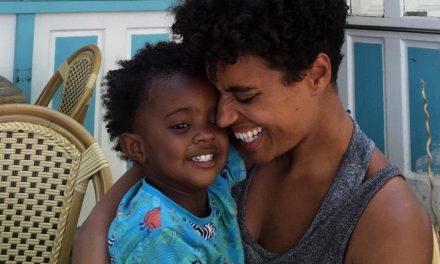While there has been progress in recent years, the representation of Black children in storybooks has historically been limited and lacking. For a long time, many children’s books featured predominantly white characters and often perpetuated stereotypes or ignored the experiences and cultures of Black children. However, it is important to note that representation is an ongoing journey, and efforts have been made to address this issue. In recent years, there has been a greater push for diversity and inclusion in children’s literature, including increased representation of Black characters and stories. Many authors, illustrators, publishers, and organisations are actively working to create and promote books that centre around Black children and their experiences.
While progress has been made, there is still much work to be done. Black children, like children from all backgrounds, deserve to see themselves reflected in a wide range of stories that showcase their diversity, talents, and experiences. It is important for Black children to have access to a rich and varied selection of books that celebrate their identities and offer positive role models. Additionally, it is crucial to ensure that representation goes beyond the surface level and encompasses authentic and nuanced portrayals of Black characters. This means moving beyond tokenism and incorporating diverse perspectives, experiences, and narratives within Black communities. It is important to avoid reinforcing stereotypes or presenting a monolithic view of the Black experience.
Continued efforts are needed to provide a more comprehensive and diverse representation, ensuring that Black children have access to a wide range of books that authentically reflect their identities and experiences.
The representation of Black people in children’s storybooks is incredibly important for several reasons:
1. Identity and Self-esteem: When children see characters in books who look like them, share their experiences, and reflect on their cultural backgrounds, it helps build a positive sense of identity and self-esteem. Seeing themselves represented validates their existence, fosters a sense of belonging, and boosts their confidence and self-worth.
2. Cultural Awareness and Empathy: Exposure to diverse characters and experiences through literature promotes cultural awareness and empathy among all children. It helps them develop a broader understanding of the world, appreciate different cultures, and cultivate empathy for people who may be different from them. This understanding lays the foundation for respect, inclusivity, and acceptance.
3. Countering Stereotypes: Historically, children’s literature has been riddled with stereotypes and limited portrayals of Black characters. By offering a wide range of stories that challenge stereotypes and showcase the diversity within the Black community, children’s storybooks can help counter harmful misconceptions and promote more accurate representations.
4. Educational Enrichment: Black children’s storybooks often incorporate historical events, important figures, and cultural traditions. This allows children, both Black and non-Black, to learn about Black history, contributions, and achievements in an engaging and accessible way. It expands their knowledge base and encourages them to explore different perspectives.
5. Empowerment and Aspirations: Representation in children’s literature can inspire and empower young readers. When they see Black characters in various roles and settings, such as scientists, leaders, artists, and adventurers, it broadens their aspirations and possibilities. It sends a powerful message that they too can achieve their dreams and make a positive impact on the world.
6. Normalizing Diversity: Including diverse characters in children’s storybooks normalizes diversity and challenges the notion of a single norm or standard. It helps children recognize that the world is made up of different races, ethnicities, and cultures, fostering a sense of respect for diversity from an early age.
There are many wonderful children’s storybooks that celebrate and centre around Black characters and experiences. These books provide representation and promote diversity in children’s literature. Here are some popular and well-regarded Black children’s storybooks:
1. “Sulwe” by Lupita Nyong’o – This book tells the story of a young girl named Sulwe who goes on a magical journey of self-discovery and learns to embrace her own unique beauty.
2. “Little Leaders: Bold Women in Black History” by Vashti Harrison – This beautifully illustrated book highlights the achievements of Black women throughout history, showcasing their contributions and inspiring young readers.
3. “The Undefeated” by Kwame Alexander – This powerful picture book pays tribute to the resilience and strength of Black Americans, celebrating their triumphs and contributions to history.
4. “I Love Me” by Marvyn Harrison – This book has joyful, uplifting statements for each day of the week, it provides an enjoyable routine to help prepare young children for the wider world of nursery and school.
5. “I Am Enough” by Grace Byers – This uplifting story encourages children to love and accept themselves as they are, promoting self-worth and resilience.
6. “Tar Beach” by Faith Ringgold – In this story, a young girl named Cassie dreams of flying over her city and claiming it as her own, defying racial and social boundaries.
7. “Hair Love” by Matthew A. Cherry – This heartwarming tale celebrates the bond between a father and his daughter as they navigate the challenges of styling her natural hair.
8.”Crown: An Ode to the Fresh Cut” by Derrick Barnes – This book follows a young Black boy on a trip to the barbershop, capturing the joy, confidence, and self-esteem that comes with a fresh haircut.
9. “Mae Among the Stars” by Roda Ahmed – Inspired by the true story of Mae Jemison, the first African-American woman to travel in space, this book encourages young readers to pursue their dreams.
10. “Sisters” by Raina Telgemeier – This graphic novel follows the experiences of two sisters, exploring themes of family, friendship, and growing up while featuring diverse characters.
These are just a few examples of the many wonderful Black children’s storybooks available. They cover a range of themes and topics, providing representation and empowering messages for young readers.
Join the conversation on our podcast by and streaming “Ace And The Animal Heroes” with JB Gill












